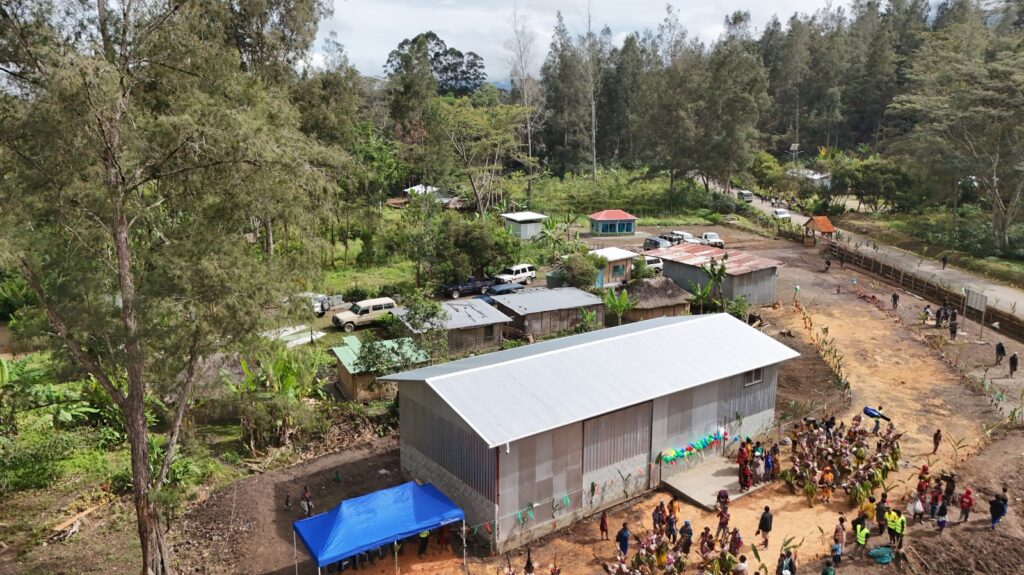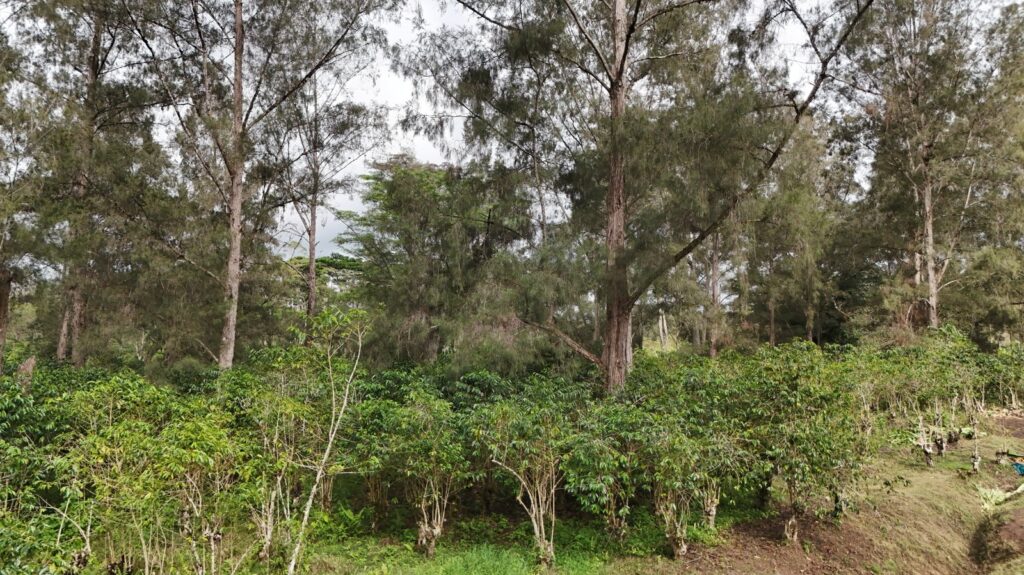Dei Council, Western Highlands Province, Wednesday, May 14, 2025 – Papua New Guinea’s coffee industry received a fresh boost this week with the opening of a new coffee storage and processing shed at Nunga Plantation in Dei Council, Western Highlands Province.
The new facility — which will be equipped to handle premium Honey Processed Coffee — is part of a K1 million support package provided to Nunga Plantation under the PNG Agriculture Commercialisation and Diversification (PACD) Project, which is funded by the PNG Government with World Bank support. The package is enabling the rehabilitation of 100 hectares of coffee and the construction of vital infrastructure, including the new shed.
Nunga Coffee Plantation is situated in Mala Kinjibi LLG of Dei Council District in Western Highlands Province, with membership of 110 coffee farming households, stretching into Tabibuga LLG in Jimi District of Jiwaka Province. Currently, the plantation is supporting 200 coffee farming households under the Coffee Industry Corporation Ltd (CICL)-PACD grant agreement valued at K1 million. Key achievements to date include:
• Distribution and planting of 19,000 coffee seedlings;
• Distribution of weedicides to assist farmers with plantation rehabilitation; and
• Completion of a central storage and resource centre, which will now also house honey processing equipment.
The CICL-PACD Project is driving these efforts under its core objectives to:
• Increase production and market access;
• Improve coffee quality and increase farmer incomes; and
• Boost productivity while reducing post-harvest losses.

Coffee Industry Corporation Ltd (CICL)-PACD Project Manager Mr Potaisa Hombunaka said the investment at Nunga was not only about reviving coffee trees but also about transforming the way the industry operates—placing resource owners, growers, and landowners at the heart of the value chain.
“This K1 million support is helping Nunga Plantation to rehabilitate 100 hectares of coffee, including this new shed to introduce Honey Processed Coffee—a product that now commands the highest prices on the global coffee market,” Mr Hombunaka said.

He stressed that this is part of a larger strategy to transition from traditional models where growers were dependent on buyers and exporters, to one where they become direct participants in processing and marketing.
“With PNG celebrating 50 years of independence, we must stop doing the same old things and expecting different results. It’s time to change how we do agriculture—coffee, cocoa, coconut, oil palm, livestock, vegetables, spices. It’s about market-driven, private sector-led, and community-empowered agriculture,” he emphasised.
Echoing this message, World Bank PACD Team Leader Mr Allan Oliver said the PACD Project is built on lessons from past failures and is now promoting models that enable the private sector and resource owners to take leadership in production, marketing, and value-adding.
“The World Bank has been walking side by side with PNG’s coffee industry since 2012, and what we have learned is clear—we cannot continue to use outdated models where growers are left at the mercy of exporters and processors,” Mr Oliver said.
He explained that PACD is about creating marketing infrastructure like the new storage shed and promoting commercial partnerships between growers and the private sector.
“Our support is not free handouts. It is about setting up systems that are commercially viable and sustainable beyond the life of the project. That’s why we are supporting 100 hectares of coffee at Nunga Plantation with K1 million — delivered through a private sector-led model where resource owners must step up, manage, and take responsibility for their own plantations and the marketing of their coffee,” Mr Oliver said.
He pointed out that Honey Processed Coffee, as now being introduced at Nunga, is one of the highest-priced commodities globally due to its superior quality and processing method, which requires precision and care.
“Honey Processed Coffee is not just a trend—it’s a pathway for PNG coffee to access niche, high-value markets that will directly benefit growers and their communities if done right,” Mr Oliver added.
The event, attended by officials from the World Bank, Western Highlands Provincial Government, and government departments, showcased a new model for plantation rehabilitation and rural development—one that puts responsibility and opportunity squarely in the hands of landowners, communities, and their private sector partners.
Both leaders emphasised that this approach must now set the new benchmark for PNG’s coffee industry—placing power, profits, and responsibility back into the hands of its growers and communities.
Wow, thats great news, welcome to the community, can’t wait see changes and development of coffee productions, our weak areas discouraging coffee farming:
1, we do not have well established market .
2, low price
3, poor management
4, lack support from outside organisation like you fine people set up now.
Thank you once again we all happy to work together.
Resident of Nelga community